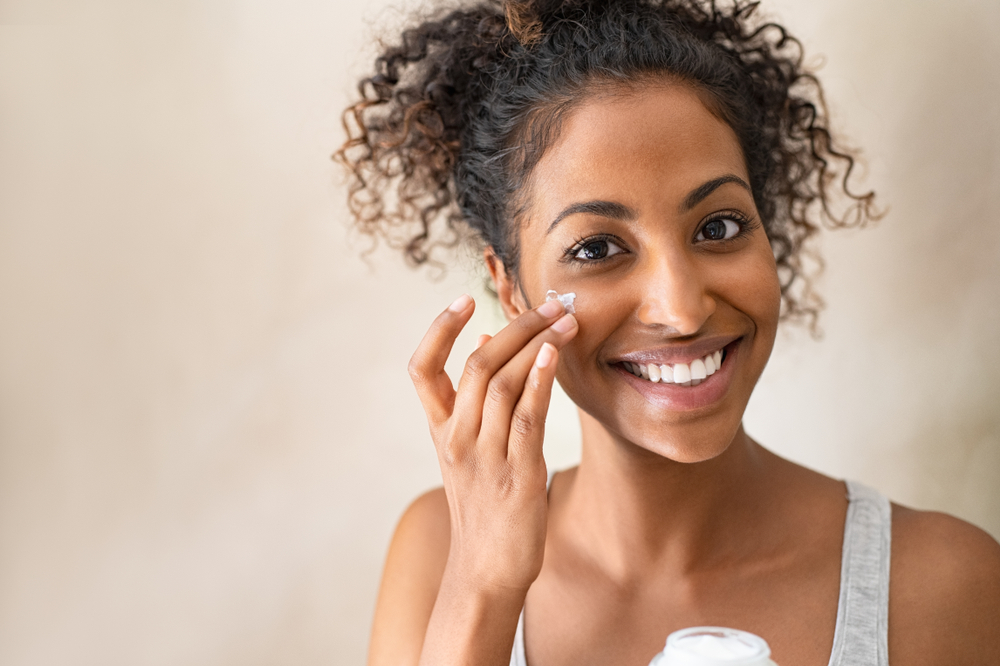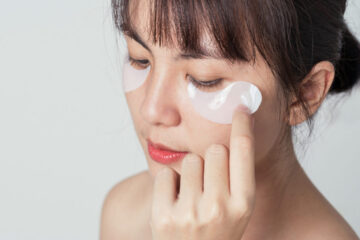Every woman deserves to have glowing, healthy skin at every stage of her life. Navigating the world of women’s skincare can be overwhelming, but understanding the right products and practices for each age can make all the difference. In this guide, we’ll explore essential skincare tips, anti-aging strategies, and the best beauty routines to help you maintain radiant skin from your teens to your golden years.
Skincare Basics: Understanding Your Skin
The Science of Skin
Our skin is a complex organ with various types and concerns that change as we age. From oily and acne-prone to dry and sensitive, identifying your skin type is the first step to effective skincare.
Identifying Your Skin Type
To determine your skin type, observe how your skin behaves throughout the day. Is it oily by midday or dry and flaky in the morning? Knowing your skin type helps you choose products that cater to your specific needs.
Understanding the Aging Process
Aging is a natural process that affects the skin’s texture, elasticity, and appearance. By understanding how your skin changes over time, you can adopt practices that address these concerns, keeping your skin healthy and vibrant.
Skincare Routines by Age Group
Teens and Early 20s
Preventative care is crucial during these years. Focus on building good habits like cleansing, moisturizing, and using sunscreen. These steps lay the foundation for lifelong healthy skin.
Late 20s to 30s
This stage requires attention to early signs of aging. Incorporate products that boost collagen production and protect against environmental damage. Antioxidants and hydration are key to maintaining youthful skin.
40s and Beyond
Address mature skin concerns with targeted anti-aging strategies. Retinoids, peptides, and hydration play vital roles in reducing wrinkles and improving skin elasticity. Regular use of these products can significantly enhance your skin’s appearance.
Special Ingredients to Look For
Hyaluronic Acid
Hyaluronic acid is a powerhouse ingredient known for its exceptional ability to retain moisture. It can hold up to 1,000 times its weight in water, making it an ideal choice for all skin types, particularly dry or dehydrated skin. Incorporating products containing hyaluronic acid into your routine can help maintain skin plumpness and elasticity.
Vitamin C
Vitamin C is a potent antioxidant that protects the skin from damage caused by free radicals and environmental stressors. Beyond its protective benefits, it also aids in brightening the complexion and boosting collagen production, making it a crucial addition to any skincare regime, particularly for those looking to combat dullness or uneven skin tone.
Retinoids
Retinoids, derived from vitamin A, are celebrated for their anti-aging properties. They work by increasing cell turnover, stimulating collagen production, and improving skin texture. While they may cause initial irritation, gradual incorporation into your routine can lead to remarkable improvements in the appearance of fine lines and wrinkles.
SPF (Sun Protection Factor)
An essential component of any skincare routine at any age, broad-spectrum SPF protects against UVA and UVB rays that can accelerate skin aging. Daily application of sunscreen, regardless of the weather or time spent outdoors, is critical in preserving skin health and preventing sun damage.
Tips for Developing a Personalized Skincare Routine
- Assess Your Skin Regularly: Your skin’s needs may change due to factors like weather, diet, or hormonal changes. Regularly reassess your skin type and adjust your products and routine accordingly.
- Patch Test New Products: Always patch test new additions to your skincare routine to avoid adverse reactions. Apply a small amount to an inconspicuous area and wait 24 hours to see if any irritation occurs.
- Stay Consistent: Consistency is key to achieving and maintaining results. Stick to your routine long enough—typically three to six months—to see significant changes in your skin.
- Listen to Your Skin: Pay attention to how your skin responds to different products. If something irritates or causes breakouts, don’t hesitate to modify your routine.
- Consult a Professional: For personalized advice, consider consulting with a dermatologist. They can provide guidance tailored to your specific skin concerns and conditions.
Essential Skincare Products for Every Age
Cleansers and Exfoliants
A good cleanser removes impurities without stripping the skin of its natural oils. Exfoliants help slough off dead skin cells, revealing a fresh and smooth complexion.
Moisturizers and Sunscreens
Hydration is essential for all skin types. Choose a moisturizer that suits your skin’s needs and always use sunscreen to protect against UV damage.
Specialized Products
Serums, eye creams, and treatments address specific concerns like fine lines, dark spots, and puffiness. Incorporate these into your routine for targeted results.
Common Skincare Practices and Their Benefits
Proper Cleansing
Thorough cleansing removes makeup, dirt, and pollutants, preventing clogged pores and breakouts. Use a gentle cleanser suitable for your skin type.
Exfoliation and Hydration
Regular exfoliation promotes cell turnover and enhances the effectiveness of other products. Hydration keeps your skin plump and healthy, reducing the appearance of fine lines.
Skincare Tools and Techniques
Tools like facial brushes and gua sha can enhance your skincare routine. Gua sha, for example, improves blood circulation and reduces puffiness, giving your skin a natural glow.
Lifestyle Factors That Impact Skin Health
Diet and Nutrition
What we eat plays a vital role in the health and appearance of our skin. A diet rich in fruits, vegetables, whole grains, and healthy fats can provide the essential nutrients necessary for radiant skin. Foods high in antioxidants, vitamins (like A, C, and E), and omega-3 fatty acids can help combat inflammation and oxidative stress, contributing to a youthful complexion.
Hydration
Adequate hydration is crucial for maintaining skin elasticity and moisture. Drinking enough water throughout the day ensures that your body is well-hydrated, which reflects on your skin’s appearance. Additionally, incorporating hydrating foods such as cucumbers, oranges, and watermelon can also help boost your skin’s moisture levels.
Sleep
Quality sleep is essential for overall health, including skin health. During sleep, the body repairs and regenerates skin cells, helping to reduce signs of aging and promote a glowing complexion. Aim for 7 to 9 hours of quality sleep each night to allow your skin the time it needs to rejuvenate.
Stress Management
Chronic stress can lead to various skin issues, including breakouts, eczema, and psoriasis. Implementing stress management techniques such as regular exercise, meditation, or yoga can greatly benefit both your mental well-being and your skin’s health.
Sun Exposure
While sunlight is a source of vitamin D, excessive exposure can lead to premature aging, sunburn, and an increased risk of skin cancer. It’s crucial to balance sun exposure with protective measures. Wearing protective clothing, seeking shade during peak sun hours, and using broad-spectrum SPF are essential for maintaining healthy skin.
Avoiding Harmful Habits
Habits such as smoking and excessive alcohol consumption can negatively impact skin health. Smoking narrows blood vessels, reducing oxygen flow and nutrients to the skin, while alcohol can dehydrate the skin and contribute to a dull appearance. Quitting smoking and moderating alcohol intake can lead to noticeable improvements in skin texture and tone.
Making Informed Decisions
Reading Labels and Understanding Ingredients
Knowing what’s in your skincare products is crucial. Look for ingredients that address your specific concerns and avoid those that may cause irritation.
Finding the Right Products
Choose products based on your skin type and concerns. Don’t be afraid to experiment, but always patch-test new products to ensure they suit your skin.
Expert Recommendations
Consulting dermatologists or skincare experts can provide personalized advice and recommendations. Their insights can help you make informed decisions about your skincare routine.
The Role of Diet and Lifestyle in Skincare
Nutrition and Skin Health
A balanced diet rich in vitamins and antioxidants promotes healthy skin. Foods like berries, nuts, and leafy greens provide essential nutrients for skin repair and maintenance.
Lifestyle Habits
Good sleep, regular exercise, and stress management significantly impact your skin’s health. Incorporate these habits into your daily routine for overall well-being.
Recommendations for a Skin-Friendly Lifestyle
Avoid smoking and excessive alcohol consumption, as they can damage your skin. Stay hydrated and protect your skin from harsh environmental factors like pollution and sun exposure.
Incorporating Skincare into Your Daily Routine
Creating a Personalized Routine
Your skincare routine should fit your lifestyle and address your specific needs. Develop a morning and evening routine that includes cleansing, moisturizing, and protection.
Staying Consistent
Consistency is key to seeing results. Stick to your routine and adjust as needed based on your skin’s response. Regularly review and update your products to keep up with your skin’s changing needs.
Long-Term Improvements
Patience and perseverance lead to long-term skincare success. Track your progress and celebrate small victories along the way. Your skin will thank you for your care and attention.
Conclusion
Skincare is a lifelong journey that evolves with age. By understanding your skin, using age-appropriate products, and adopting healthy habits, you can maintain radiant skin at any stage of life. Take proactive steps today for healthier, more beautiful skin tomorrow. Share this post with your friends and explore our resources for more tips and advice on achieving your best skin.
By following this guide, you’ll be well-equipped to navigate the world of women’s skincare and make informed decisions that benefit your skin’s health and appearance. Remember, your skin is unique, and finding what works best for you is the key to achieving a glowing complexion.





